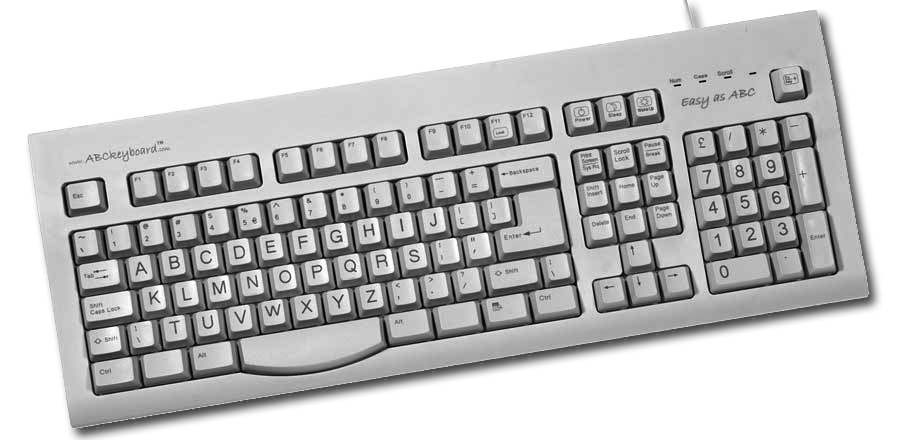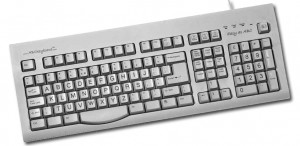
Linh Dinh has a new Harriet post called “Poetry and Technology,”and it fairly bristled with interesting ideas. “One may begin writing a poem in complete freedom, that is, in complete randomness,” he notes, “but one should end the exasperating process in abject submission.” Another way of putting is that writing a poem is like digging your own grave! (Linh also says, “With irony, everything is possible.”)
One surprise in his post—surprising to me, though others may not find it so—is Linh’s revelation that he writes on a laptop while lying on his belly. Readers of my earlier post on this blog will note my bottom-line position—that writing on a computer “obviates much of the physicality involved in writing, and that makes it dangerous for poetry.” Suddenly, I’m not so sure. Linh is a terrific poet, ergo the physicality of the keyboard must be as positive for his process as the physicality of the pen is for mine.
But the keyboard is so inflexible! In fact, in his book on evolution (Darwin’s Dangerous Idea), Daniel C. Dennett points out that the standard QWERTY keyboard was not created to serve some intuitive, natural way humans in the West have of selecting letters mechanically: it was developed as an optimal layout for reducing the jamming of keys on a typewriter. As one designer of an alternative keyboard notes, the QWERTY keyboard had several negative impacts its users: “[The Qwerty layout] made the typewriter very difficult for typists to learn, which kept them slow. The by-products of Qwerty were to make the fingers travel further to type words, making fast typing difficult, and to help cause the thousands of cases of RSI (Repetitive Stress Injury) that we see today.”
Dennett, in fact, uses the QWERTY layout to exemplify features in the biological world that evolved in response to some local, historical condition and then became so entwined in later evolutionary developments that they seem to us necessary or universal, when in fact they’re not: they are relics that may be inelegant and even damaging, but going back to other, more positive forms is difficult if not impossible. We might all prefer a more natural, easier to use layout, but manufacturers worldwide are financially locked into the QWERTY layout, and millions have users have painfully trained themselves to use it. Carpel Tunnel Syndrome be damned—full speed ahead!
No, I’m not saying that Linh needs to give up his laptop for a pen. But he should give his pen a try—in the spirit of experiment, if nothing else. Why knuckle under to the influence of Capitalist keyboard manufacturers? Who wants to be under their thumbs?
Give me a sleek, ultra-fine point rollerball any day—or even a Bic in a pinch….

 Joseph Hutchison, Colorado Poet Laureate 2014-2019, has published 20 collections of poems and edited or co-edited three poetry anthologies. He currently directs two master’s-level programs for University College at the University of Denver: Professional Creative Writing and Arts & Culture Management. Joe lives with his wife, Melody Madonna, in the mountains southwest of Denver, Colorado, the city where he was born.
Joseph Hutchison, Colorado Poet Laureate 2014-2019, has published 20 collections of poems and edited or co-edited three poetry anthologies. He currently directs two master’s-level programs for University College at the University of Denver: Professional Creative Writing and Arts & Culture Management. Joe lives with his wife, Melody Madonna, in the mountains southwest of Denver, Colorado, the city where he was born. 










Found you by way of C. Dale’s blog and your excellent comment on Logan.<BR/><BR/>Like Dinh, I do most of my writing now on my laptop. I keep a notebook to jot down phrases, thoughts, etc., but all of my poems for the last two or three years have been typed directly into my Mac. It gives me a chance to play with line breaks, catch misspellings, delete it immediately if its crap. I don’t think I’ll